Oceans
-
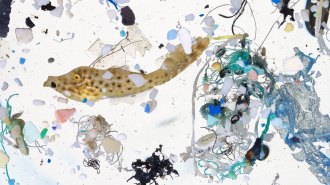 Earth
EarthPlastics outnumber baby fish 7-to-1 in some coastal nurseries
Ocean slicks serve as calm, food-rich nurseries for larval fish. A new study shows that slicks also accumulate plastics, which get eaten by baby fish.
-
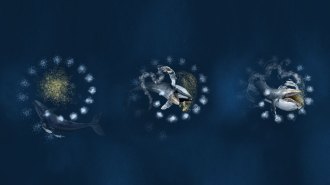 Animals
AnimalsHumpback whales use their flippers and bubble ‘nets’ to catch fish
A study reveals new details of how humpback whales hunt using their flippers and a whirl of bubbles to capture fish.
By Sofie Bates -
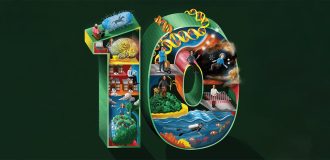 Science & Society
Science & SocietyThis year’s SN 10 enjoy the journey, not just the discovery
Meet 10 young researchers who combine persistence and passion to make headway on science’s big questions.
-
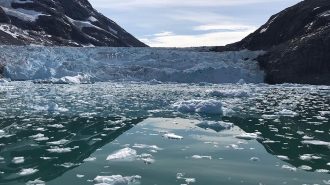 Climate
ClimateHow climate change is already altering oceans and ice, and what’s to come
A new IPCC report gives the lowdown on how climate change is already wreaking havoc on Earth’s oceans and frozen regions, and how much worse things could get.
-
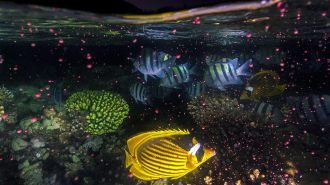 Life
LifeClimate change may be throwing coral sex out of sync
Several widespread corals in the Red Sea are flubbing cues to spawn en masse.
By Susan Milius -
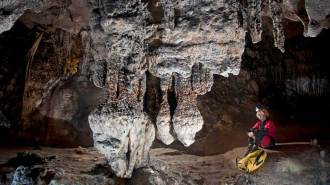 Earth
EarthAncient crystal growths in caves reveal seas rose 16 meters in a warmer world
The Pliocene era cave formations on the Spanish coast of Mallorca offer hints about how oceans could respond to human-driven climate change.
-
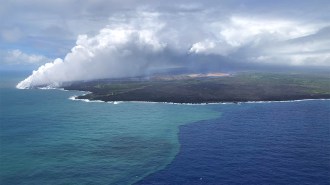 Earth
EarthHow Kilauea’s lava fed a massive phytoplankton bloom
Kilauea’s heavy flow of lava into the ocean in 2018 added both food and heat to fuel a sudden bloom of ocean algae.
-
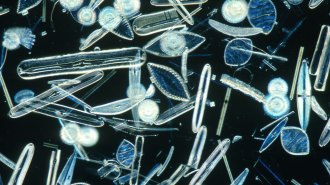 Earth
EarthOcean acidification could weaken diatoms’ glass houses
Ocean acidification may lead to smaller, lighter diatoms in seawater, which could also shrink how much carbon the tiny ocean algae can help sequester.
-
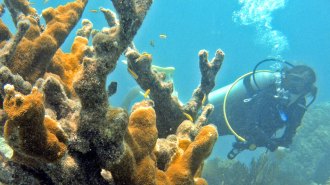 Life
LifeHow a newly identified bacterium saps corals of their energy
A parasitic bacterium that preys on corals quickly reproduces when it senses more nutrients in its host.
-
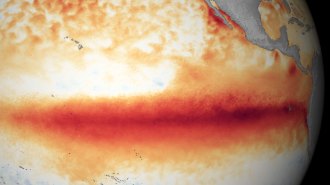 Climate
ClimateClimate change may make El Niño and La Niña less predictable
Atlantic Niñas and Niños have been fairly reliable bellwethers for severe El Niño and La Niña events in the Pacific. A warming world may change that.
-
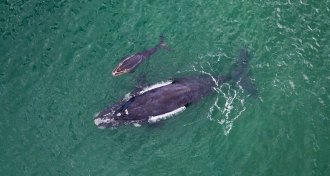 Animals
AnimalsSouthern right whale moms and calves may whisper to evade orcas
Mother-calf whale pairs call to each other quietly to stay in touch while avoiding attracting the attention of predators, a study suggests.
-
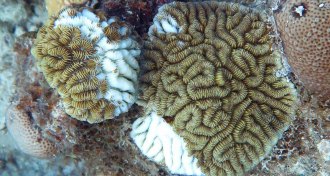 Oceans
OceansA mysterious coral disease is ravaging Caribbean reefs
Scientists are racing to learn what’s behind a disease that’s “annihilating” whole coral species in hopes of stopping it.